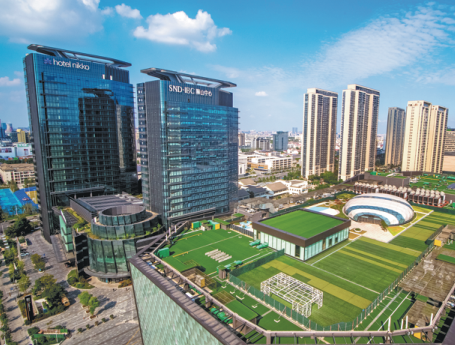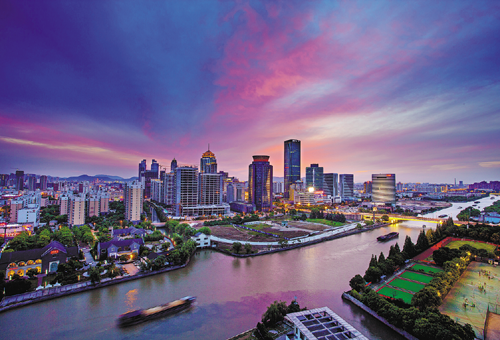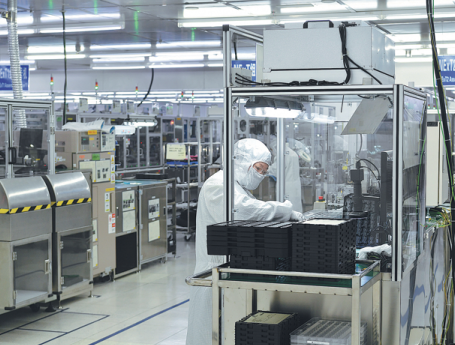Suzhou New District a beacon for Japanese companies

Favorable policies attract overseas-invested businesses
Suzhou New District, established in 1992 as one of China's first national high-tech zones, has become a magnet for Japanese investors in the city.
As the epidemic situation eased in August, the district in Suzhou, East China's Jiangsu province, sent a trade delegation to Japan to attract investment.
The team, led by Ding Yongjun, director of the district's office in Japan, carried out a series of business visits to local companies which have invested in projects in Suzhou.
"We learned about their current developments in Suzhou, answered their questions and introduced the district's latest industrial policies," Ding said.
Compared with online communication, face-to-face negotiations and talks can make companies more confident about investing in the district, said Ding, who has nearly 20 years of working experience in attracting foreign investment.
The team's first stop was Panac, a listed company based in Tokyo. Panac produces, processes and sells plastic films with functional performance, such as smartphone touch screens and transportation cards.
At the end of last year, the company moved its Suzhou plant to the district and expanded its plant from 10,000 square meters to more than 20,000 sq m.
During the visit, Ding introduced the district's advantages in policies, human resources, land and other resources to the company. He also learned about Panac's investment intentions and new research focuses.
Panac plans to relocate factories in other Chinese cities to the district to integrate with the current one, as well as shift some investment that was scheduled to be made in Southeast Asian countries to Suzhou, to expand its production scale in the district, said Katsunori Murata, an executive at the company.
The company will also build the Suzhou plant into its China headquarters in the future, Murata said.
The team also paid visits to some of the headquarters of the district's major Japanese companies including Panasonic, Canon, Kawasaki, NGK, Fujifilm and JDI Electronics, aiming to learn about their needs for production, investment and technology upgrading.
To help Japanese companies learn about the latest development in Suzhou, the district's Japanese office updates information daily on epidemic prevention and control in China and the district's investment attraction trends on its official website.
The website, which went live in December 2019, also provides details about preferential policies, investment platforms, technological innovation and supporting infrastructure in the district.
Through the communication channel provided by the website, the district has signed letters of investment intent with dozens of Japanese companies engaged in the industries of food production, new energy, logistics and medical service.
To date, 589 Japanese companies have settled in the district, including 17 Fortune Global 500 enterprises, accounting for one-third of the district's total foreign-invested companies. They have made a total investment of $20 billion and forged complete industrial chains for electronic communication, equipment manufacturing and auto parts.
In 2019, the overall industrial output value of Japanese companies above designated size in the district was 50 billion yuan ($7.6 billion), and the import and export volume of these companies totaled $12 billion. They also contributed 3 billion yuan in taxes, accounting for nearly 10 percent of the district's total tax revenue.
Currently, all the Japanese companies in the district have resumed operations and major projects are also back on track.
The China-Japan Innovation Valley (Suzhou), with a total investment of 5 billion yuan, will build a technological exchange platform, an intelligent manufacturing industrial park and a regional cluster of headquarters for Japanese companies.
Also, Panasonic Semiconductor has established a car camera research and development center in the district, the only one of its kind the company has built in China.
By 2023, the district is expected to have attracted more than 800 Japanese companies, according to local officials.
haonan@chinadaily.com.cn


Invest in China Copyright © 2025 China Daily All rights Reserved
京ICP备13028878号-6
 京公网安备 11010502032503号
京公网安备 11010502032503号





